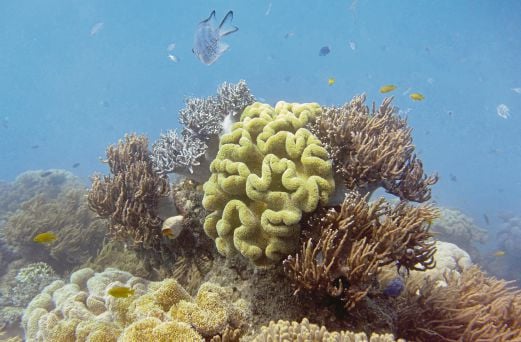ENVIRONMENTAL issues have again taken centrestage at the United Nations and elsewhere this past week. In Malaysia, the haze continues to threaten Malaysians.
To be fair, environmental issues never really went away, not since it was first discussed at the Earth Summit in Rio in 1992. Malaysia led the charge of the developing countries then, culminating in the UN Framework Convention on Climate Change, which gave birth to the Kyoto Protocol that set differential standards between countries in their emission of greenhouse gases.
It also led to the establishment of the Commission on Sustainable Development, which Malaysia’s Tan Sri Razali Ismail was elected to serve as its first chairman.
Fast forward to the present. Just this past Friday, concerns about the environment was cranked up a notch when Pope Francis addressed the UN General Assembly, and spoke of the “right of the environment”, equating harm done to the environment as akin to harming humanity. This came on the heels of the furore caused by Volkswagen’s admission that it had cheated on its emissions test.
With everyone in thrall of this environmental panic, let me play devil’s advocate and argue that important as they are, environmental issues should not be our priority in global discussions. If every story has more than one side, then let us look at the side that gets little publicity.
Just before the turn of the millennium, a former environmental activist wrote his version of the truth. No, the activist wasn’t former United States vice-president Al Gore. It was a Danish academician Bjørn Lomborg.
Lomborg had seen first hand how statistics could be manipulated to create widespread panic. In the book The Skeptical Environmentalist, he set out to prove that the figures were nowhere near as bad as the doomsayers said they were.
Using those same figures that the Intergovernmental Panel on Climate Change had used, Lomborg showed that while it was true that the global temperature had increased by 0.6°C over the past century, this increase was not across the whole globe. In other words, the increase was an increase in the average annual temperature; some places became hotter at certain times of the year, while others remained the same.
These places that had grown hotter (in 100 years, mind you) were in countries that had a winter, and not in countries of the tropics. Winter was becoming warmer, or shorter in duration. All this meant was that farming cycles could now last longer because of the milder weather, and that cold-related health issues could now be minimised. Surely this is a good thing?
Climate change is also blamed for a possible rise in the sea level. IPCC predicted that many low-laying atolls like the Maldives would be submerged within the next century if nothing was done to check climate change.
So in 2009, the Maldives held an underwater cabinet meeting to prove their point.
People panicked, forgetting that 50 per cent of the Netherlands is below sea level and has been so for as long as people can remember, and yet the country thrives. Rising sea levels is not a recent phenomena. The key is in correctly handling it rather than trying to thwart it.
Most people look at environmental change as something that should be feared.
They should instead see it as something inevitable. Once, a long time ago, there was only one continent, one landmass. Now we are seven continents and millions of islands dotting the globe. Lands have been rising and falling since the earth existed. Should today be any different, and what would it mean to evolution if we were to stop that trend?
The climate change statistics look grim; there’s no getting away from that. But other than naturalists who believe that this is part of evolution anyway, there is now a growing number of scientists who believe that the situation has been exaggerated.
In 2012, Nobel-winning physicist Ivar Giaever joined the ranks of scientists who have taken a stand against the incontrovertible evidence, arguing that resources could better be diverted to other programmes than the iffy task of tackling climate change.
Doomsayers that we are, we like believing in the worst. We fail to see that the projections are for the next 50 years, and probable at best. I would rather work on the here and now rather than in the there and maybe. Stopping change is like stopping a tsunami; it just can’t be done. It would be better for us to build resilience and learn to adapt, rather than stopping Mother Nature from change.
The writer is a Malaysian diplomat who has served in the United Nations (New York) and is pursuing her PhD at the University of Sheffield





